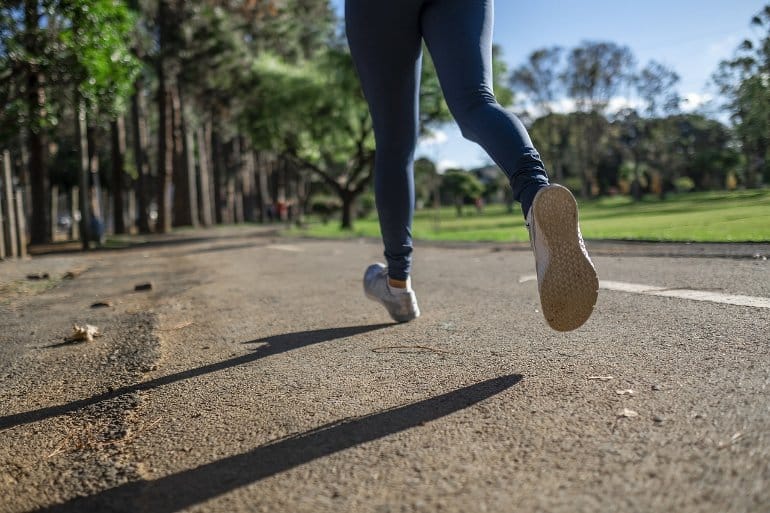summary: Exercise interventions lasting 12 weeks or less appear to be most effective in reducing mental health symptoms, especially for people suffering from anxiety and depression. High-intensity exercise has been shown to be more beneficial than long-term programs in reducing symptoms of anxiety and depression.
sauce: University of South Australia
Researchers at the University of South Australia have called for exercise to be the leading approach to managing depression.
Posted in British Journal of Sports Medicine, this review is the most comprehensive to date, containing 97 reviews, 1,039 trials, and 128,119 participants. Physical activity has been shown to be highly beneficial in improving symptoms of depression, anxiety and distress.
Specifically, this review showed that exercise interventions within 12 weeks were most effective in reducing mental health symptoms, highlighting the speed at which physical activity makes a difference.
The greatest effects were seen in depressed people, pregnant and postpartum women, healthy people, and those diagnosed with HIV or kidney disease.
According to the World Health Organization, 1 in 8 people worldwide (970 million) have a mental disorder. Poor mental health costs the global economy about $2.5 trillion annually, and by 2030 this cost is projected to reach her $6 trillion.
UniSA principal investigator Ben Singh, PhD, says physical activity needs to be prioritized to better manage the increasing number of mental health conditions.
“Physical activity is known to help improve mental health, but despite the evidence, it is not widely adopted as a first-line treatment,” says Dr. Singh. “Our review shows that physical activity interventions significantly reduce symptoms of depression and anxiety in all clinical populations, with some groups showing even greater signs of improvement.
“High-intensity exercise contributed significantly to improving depression and anxiety, but long-term exercise had a smaller effect than short- and medium-term bursts.
“We’ve also found that all types of physical activity and exercise are beneficial, including aerobic exercise such as walking, strength training, Pilates, and yoga.
“Importantly, this study shows that exercise doesn’t take long to make positive changes in mental health.”
Senior Research Fellow UniSA Professor Carol Maher says the study is the first to assess the effects of any type of physical activity on depression, anxiety and distress in all adult populations. “Considering these studies as a whole is an effective way for clinicians to easily understand the body of evidence that supports physical activity in the management of mental health disorders,” she said.
“We hope this review will highlight the need for physical activity, including structured exercise interventions, as a primary approach to managing depression and anxiety.”
About this exercise and mental health research news
author: press office
sauce: University of South Australia
contact: Press Office – University of South Australia
image: image is public domain
Original research: open access.
“Effectiveness of physical activity interventions to ameliorate depression, anxiety, and distress: an overview of a systematic review.By Ben Singh et al. British Journal of Sports Medicine
overview
Effectiveness of physical activity interventions to ameliorate depression, anxiety, and distress: an overview of a systematic review.
the purpose
To synthesize evidence on the effects of physical activity on symptoms of depression, anxiety, and distress in adult populations.
See also

design
Umbrella review.
data source
Twelve electronic databases were searched for eligible studies published between inception and 1 January 2022.
Eligibility criteria for selecting studies
A systematic review through a meta-analysis of randomized controlled trials designed to increase physical activity in adult populations and that assessed depression, anxiety, or psychological distress was eligible. Selection of studies was performed in duplicate by two independent reviewers.
result
We included 97 reviews (1039 trials and 128,119 participants). The population included healthy adults, those with mental disorders, and those with various chronic diseases. Most reviews (n=77) scored very low on the measurement tools used to assess systematic reviews. -0.27), anxiety (median effect size = -0.42, IQR = -0.66 to -0.26), and psychological distress (effect size = -0.60). , 95% CI -0.78 to -0.42), compared with usual care in all populations. The greatest effects were seen in people with depression, HIV, kidney disease, pregnant and postpartum women, and healthy people. The effectiveness of physical activity interventions decreased with increasing intervention duration.
Conclusion and relevance
Physical activity is highly beneficial in improving symptoms of depression, anxiety, and distress across a wide range of adult populations, including the general population, those diagnosed with mental disorders, and those with chronic illnesses. It should be the primary approach in managing depression, anxiety, and emotional distress.
